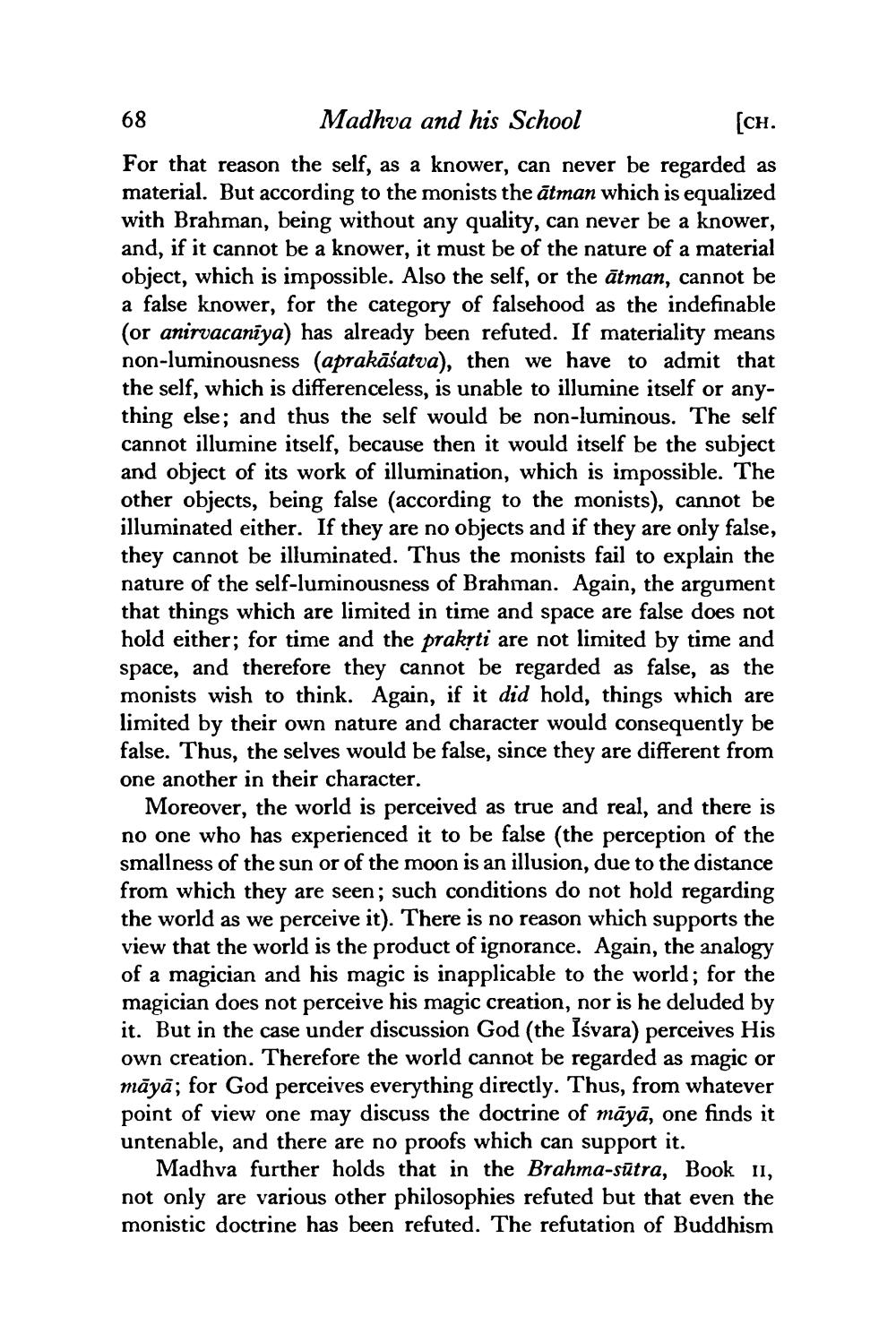________________
889
Madhva and his School
[CH.
For that reason the self, as a knower, can never be regarded as material. But according to the monists the ātman which is equalized with Brahman, being without any quality, can never be a knower, and, if it cannot be a knower, it must be of the nature of a material object, which is impossible. Also the self, or the ātman, cannot be a false knower, for the category of falsehood as the indefinable (or anirvacaniya) has already been refuted. If materiality means non-luminousness (aprakāśatva), then we have to admit that the self, which is differenceless, is unable to illumine itself or anything else; and thus the self would be non-luminous. The self cannot illumine itself, because then it would itself be the subject and object of its work of illumination, which is impossible. The other objects, being false (according to the monists), cannot be illuminated either. If they are no objects and if they are only false, they cannot be illuminated. Thus the monists fail to explain the nature of the self-luminousness of Brahman. Again, the argument that things which are limited in time and space are false does not hold either; for time and the prakṛti are not limited by time and space, and therefore they cannot be regarded as false, as the monists wish to think. Again, if it did hold, things which are limited by their own nature and character would consequently be false. Thus, the selves would be false, since they are different from one another in their character.
68
Moreover, the world is perceived as true and real, and there is no one who has experienced it to be false (the perception of the smallness of the sun or of the moon is an illusion, due to the distance from which they are seen; such conditions do not hold regarding the world as we perceive it). There is no reason which supports the view that the world is the product of ignorance. Again, the analogy of a magician and his magic is inapplicable to the world; for the magician does not perceive his magic creation, nor is he deluded by it. But in the case under discussion God (the Isvara) perceives His own creation. Therefore the world cannot be regarded as magic or māyā; for God perceives everything directly. Thus, from whatever point of view one may discuss the doctrine of māyā, one finds it untenable, and there are no proofs which can support it.
Madhva further holds that in the Brahma-sutra, Book 11, not only are various other philosophies refuted but that even the monistic doctrine has been refuted. The refutation of Buddhism




